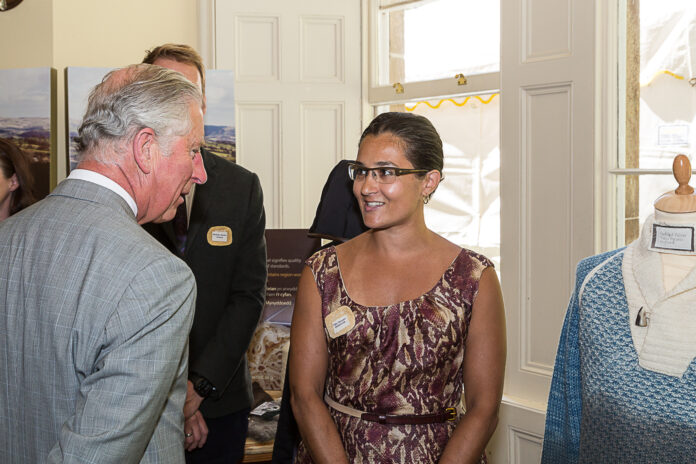Talia Hussain, the founder of the fashion label Ramnation, joined us for an interview to talk about sustainable fashion. Ramnation prides itself on using locally sourced materials; in fact, Ramnation’s entire supply chain is based in the United Kingdom.
Hi, how are you?
Generally, I’m excited that ecological issues have suddenly rocketed up in the public’s awareness. On issues like climate, plastic, biodiversity and, obviously, sustainability in fashion, people are much more aware that we need to change what we’re doing.
So, how did you get into fashion, where did it all start?
I’ve always been interested in fashion, but it’s not my background and I came from outside the industry. I had experience in advertising and got really frustrated with the huge distance between the beautiful fantasy portrayed by the fashion industry and the ugly reality that underpinned it. I wanted to know what it would be like to create a product that didn’t disguise itself and had a true story to tell.
What was the first step in making Ramnation a company?
I can’t remember, there were so many different things required to make anything happen. One of the most memorable was finding one of those old industrial blue books of knitwear suppliers and calling around to try to find a supplier. Two out of every three numbers I called was out of service, those companies had closed. The jobs, the decades of history, knowledge and experience – all gone.
Did you know from the start that Ramnation was about sustainable fashion, or was it something that came later?
It was baked in from the beginning. I started thinking about low impact and biodegradable materials and built up the product from that starting point.
In terms of finding the right suppliers of materials, was it a challenge?
Yes. I was really lucky to find a small mill that was pioneering the use of coloured and breed-specific fleeces. Other components were much more difficult. In the end, I hand printed my own labels because I couldn’t find any that didn’t contain polyester. Only in the last year or so have label manufacturers started offering eco-ranges of their products.
Do you feel the current mainstream shift into more sustainable fashion has helped Ramnation grow in the recent period?
I’ve definitely noticed more interest in the brand over the past year, though I wouldn’t agree that there has been a ‘mainstream shift’ to sustainability. Turning that ship is going to take a long time, and we’re just a little dinghy headed the opposite direction.
You rightly take pride that your products are entirely made in England, do you feel this has helped you against your competitors who may take shortcuts to get their products out there?
I’d love to say yes, unfortunately most of the industry is driven by cost and manufacturing in the UK is expensive. A buyer at a famous central London department store told me that I needed to rethink my materials and move manufacturing to China in order to get my price point down. I would love to see retailers taking more interest in storytelling about materials and manufacturing.
What is your view on fast fashion, and do you feel there will be a day when it will go away?
Like fast food, I think there will always be a market for cheap clothes. At the same time, I think there’s huge opportunity for more interesting products and a more sophisticated fashion culture to develop. As people have become more knowledgeable about the provenance of their food and drink, we’ve seen new restaurants serving those customers though McDonald’s is still here. Over time, we’ll see a similar shift in fashion – what customers value will evolve and brands will have to change to stay relevant.
My final question, how would you define the current climate the fashion industry is in?
A difficult question, but my best attempt is to say it’s become spiritually hollow. Most people think of fashion as expressive, creative and fun. But, the industry itself has become financialised, operationalised and corporate – the opposite of the values it brands itself with. There’s a huge lack of respect for creativity. A recent survey by the Business of Fashion found only 6% of fashion executives saw creativity as an opportunity. Fashion graduates are expected to work in unpaid internships for months or years. The people who physically create the garments live in poverty. Collections are churned out in days, copying and outright design theft are rampant. I hope that this unhappy dynamic can be changed. Money isn’t real, you know.

